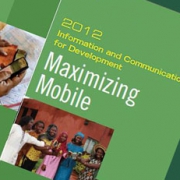Texts and Balances: Nigeria’s 2011 Election
In Nigeria’s presidential election this April, election observers sent over 35,000 daily text messages to document validity or corruption of the election counting and results. The theory behind Project Swift Count 2011 was that having election observers at voting locations around the nation equipped with mobile phones could immediately report foul play. The theory worked—statistically significant samples by independent organizations verified the published election results from the Nigerian election bureau—indicating that corruption was minimal or nonexistent.
The National Democratic Institute worked with the government of Nigeria to hire 8000 election observers to monitor 4000 voting stations. A parallel vote count was collected and corruption monitored and reported. The observers documented peoples votes, whether they were pressured by anyone, and if all the candidates were listed. Then, the observers each sent a minimum of five text messages during the course of voting to verify the following events:
1. Voting accreditation booths opened on time
2. Closing of accreditation booths on time
3. Close of voting booths
4. Starting time of vote counting
5. Accurate reporting of final votes at verified time the next day
Subsequently, political corruption was stymied and the election results were accurate in terms of the sample NDI collected. President Jonathan Goodluck was elected in a fair and clean democratic election.
The project cost around nine million dollars in total, including an independent evaluation of the funds. A group of independent researchers, including Katrin Verclas of MobileActive, carried out the evaluation, and found that nearly all the money could be accounted as originally proposed. These clean results have motivated other countries to utilize this system as well. NDI is currently working with Zambia to monitor their next elections with a similar plan.
Given the high use of mobile phones and the live stream of communication possible via SMS, mobile phones present another solution to promoting democratic elections. And with the spread of mobile satellite service around Africa, this project is scalable in other nations.







































